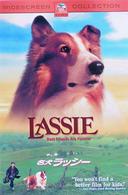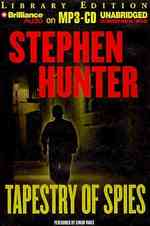Full Description
This is the first book to present an account of literary meaning and effects drawing on our best understanding of mind and language in the form of a Cognitive Grammar. The contributors provide exemplary analyses of a range of literature from science fiction, dystopia, absurdism and graphic novels to the poetry of Wordsworth, Hopkins, Sassoon, Balassi, and Dylan Thomas, as well as Shakespeare, Chaucer, Barrett Browning, Whitman, Owen and others. The application of Cognitive Grammar allows the discussion of meaning, translation, ambience, action, reflection, multimodality, empathy, experience and literariness itself to be conducted in newly valid ways. With a Foreword by the creator of Cognitive Grammar, Ronald Langacker, and an Afterword by the cognitive scientist Todd Oakley, the book represents the latest advance in literary linguistics, cognitive poetics and literary critical practice.
Contents
1. List of contributors; 2. Acknowledgements; 3. Foreword (by Langacker, Ronald W.); 4. Chapter 1. Introduction: Cognitive Grammar in literature (by Harrison, Chloe); 5. Chapter 2. War, worlds and Cognitive Grammar (by Stockwell, Peter); 6. Chapter 3. Construal and comics: The multimodal autobiography of Alison Bechdel's Fun Home (by Pleyer, Michael); 7. Chapter 4. Attentional windowing in David Foster Wallace's 'The Soul Is Not a Smithy' (by Harrison, Chloe); 8. Chapter 5. Resonant metaphor in Kazuo Ishiguro's Never Let Me Go (by Browse, Sam); 9. Chapter 6. Constructing a text world for The Handmaid's Tale (by Nuttall, Louise); 10. Chapter 7. Point of view in translation: Lewis Carroll's Alice in grammatical wonderlands (by Tabakowska, Elzbieta); 11. Chapter 8. Profiling the flight of 'The Windhover' (by Neary, Clara); 12. Chapter 9. Foregrounding the foregrounded: The literariness of Dylan Thomas's 'After the funeral' (by Paivarinta, Anne); 13. Chapter 10. Conceptual proximity and the experience of war in Siegfried Sassoon's 'A Working Party' (by Giovanelli, Marcello); 14. Chapter 11. Most and now: Tense and aspect in Balint Balassi's 'Aldott szep punkosdnek' (by Pincombe, Mike); 15. Chapter 12. Fictive motion in Wordsworthian nature (by Yuan, Wenjuan); 16. Chapter 13. The cognitive poetics of if (by Hamilton, Craig A.); 17. Chapter 14. Representing the represented: Verbal variations on Vincent's Bedroom in Arles (by Kwiatkowska, Alina); 18. Afterword: From Cognitive Grammar to systems rhetoric (by Oakley, Todd); 19. References; 20. Index






